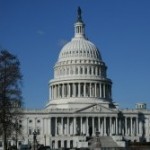 In a statement that raises new questions, the United States Consulate in Jerusalem is denying comments from their representative in which he warned the US would veto a Palestinian statehood move at the United Nations and that financial aid would be cut by Congress if the Palestinians took that step. The denial comes after the office of key Palestinian official Saeb Erekat claimed US Consul General Daniel Rubinstein made just such a warning during a meeting last week.
In a statement that raises new questions, the United States Consulate in Jerusalem is denying comments from their representative in which he warned the US would veto a Palestinian statehood move at the United Nations and that financial aid would be cut by Congress if the Palestinians took that step. The denial comes after the office of key Palestinian official Saeb Erekat claimed US Consul General Daniel Rubinstein made just such a warning during a meeting last week.
While the American interest in keeping bilateral diplomacy secret and vague in public is nothing new, the denial contrasts with the general expectation that the US plans to veto a Palestinian statehood measure at the UN Security Council. The US is one of five nations with veto power on the Council, which does have legally-binding power to recognize Palestinian statehood. Nonetheless, the US is still expected to make the veto if necessary. Attempts by The Mideast Update to get comment from the US Consulate were unsuccessful.
In the US denial statement, published by the WAFA Palestinian news agency that also carried the original veto and aid-cut warning claims by Erekat, deputy spokesperson of the US Consulate in Jerusalem Arlissa Reynolds was quoted as saying in a statement, “While we cannot get into private diplomatic discussions, this report is not an accurate portrayal of the US position.”
Reynolds also denied that Consul General Rubinstein made the warning comments attributed to him. It was unclear from the latest statement whether or not the veto threat was being denied, or if the overall comments were just what were being denied.
Reynolds did reassert the American opposition to a Palestinian move at the UN. In addition, according to a recent report by Israeli newspaper Haaretz, the US is one of five Western nations so far to inform Israel of their plans to vote against a Palestinian statehood recognition resolution at the UN General Assembly—where the recognition would be more symbolic and lack the legal authority of a Security Council resolution, albeit without the risk of a US veto.
However, unlike fellow-no vote Germany, the US has not made their voting intentions public, although the US no-vote appears to be more certain. Haaretz said that should the Palestinian resolution be worded in a moderate way that includes a potential immediate return to negotiations, Germany and three other European states could be willing to change their no-votes to abstentions. Apparently the US vote is more settled.
Overall, the Haaretz report, which covered the state of affairs heading into the upcoming Palestinian push for statehood recognition at the UN—citing a report from Israeli ambassador to the UN Ron Prosor, as well as sources from Israel’s Foreign Ministry and Prime Minister’s Office—painted a pessimistic picture for Israel.
That could leave expectation of an American veto at the Security Council as even more important to the Israelis. Haaretz reported that the Israeli Foreign Ministry feels the Palestinians could go straight to the General Assembly and avoid the Council altogether—and thereby forfeit a chance at more legal-authority for their statehood recognition plans—so as to avoid the US veto.
The US, Israel, Germany and others have expressed their opposition to a Palestinian UN bid. The Americans have repeatedly called such a step “unhelpful” to the peace process.
Israel has expressed concern that a UN General Assembly vote would codify tougher Palestinian positions with their automatic majority at the UN and would therefore make compromise even less likely.
(By Staff, www.themideastupdate.com. August 28, 2011)
